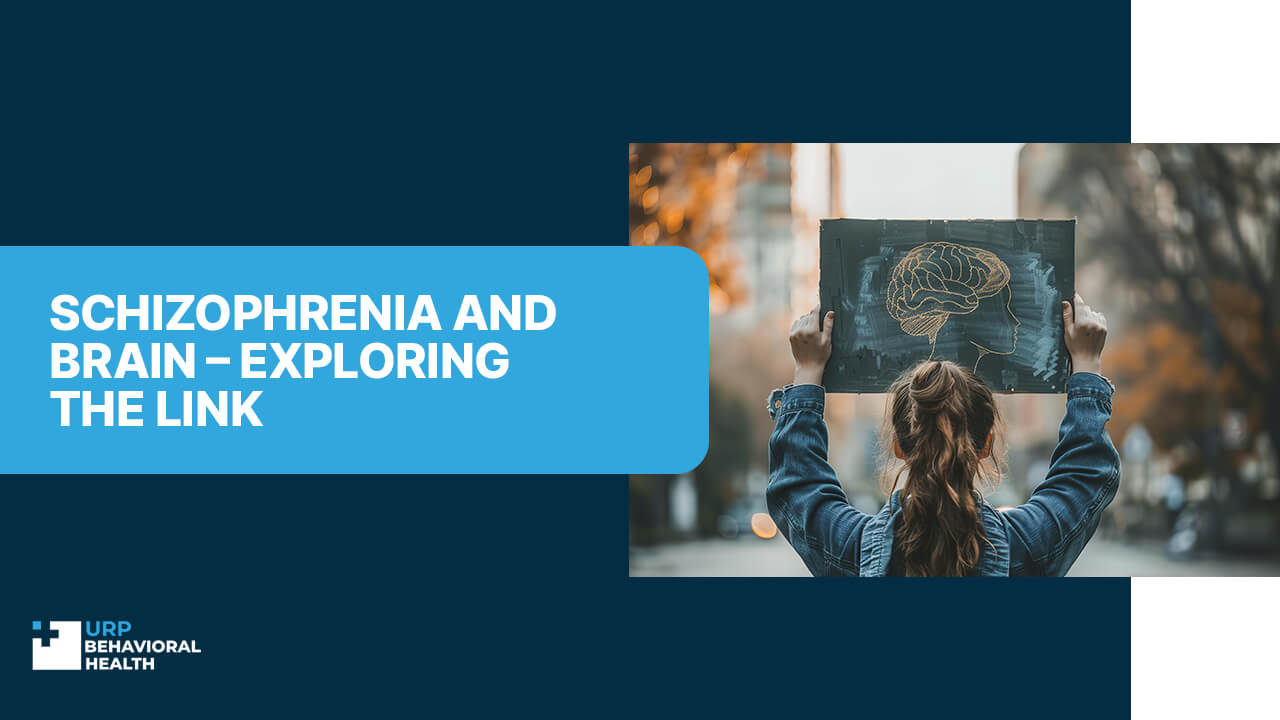
Schizophrenia and Brain – Exploring the Link
Understanding the relationship between schizophrenia and the brain is vital for creating effective treatments and enhancing outcomes for individuals with this disorder. Schizophrenia is a complex mental health condition that significantly impacts brain function and structure. This article examines the effects of schizophrenia on the brain, focusing on neurological changes, symptoms, and important research findings.
Which Parts of the Brain Does Schizophrenia Affect?
Schizophrenia primarily affects several regions of the brain, including the prefrontal cortex, hippocampus, and temporal lobes. The prefrontal cortex is responsible for higher-order cognitive functions, such as decision-making, problem-solving, and social behavior. The hippocampus plays a critical role in memory formation and spatial navigation. The temporal lobes are involved in processing auditory information and are crucial for language comprehension. These areas show structural and functional abnormalities in individuals with schizophrenia [1][2].
Don’t wait - confidential help is available right now for you or your loved one.
What Does Schizophrenia Do to the Brain?
Schizophrenia causes a range of changes in the brain, including alterations in brain structure and function. Studies have shown that individuals with schizophrenia often have reduced brain volume in certain areas, such as the prefrontal cortex and hippocampus. Additionally, there are changes in brain connectivity and activity patterns. These alterations can contribute to the cognitive and emotional symptoms experienced by individuals with schizophrenia, such as difficulties with attention, memory, and executive functioning [1].
Brain Messenger Chemicals
Neurotransmitters, the brain’s messenger chemicals, play a significant role in schizophrenia. Dopamine, in particular, has been extensively studied in relation to schizophrenia. Abnormalities in dopamine signaling are thought to contribute to the positive symptoms of schizophrenia, such as hallucinations and delusions. Other neurotransmitters, such as glutamate and serotonin, are also implicated in the disorder. Imbalances in these chemicals can affect brain function and contribute to the diverse symptoms of schizophrenia [2].
Brain Imaging
Brain imaging techniques, such as magnetic resonance imaging (MRI) and positron emission tomography (PET), have provided valuable insights into the brain abnormalities associated with schizophrenia. These imaging studies have revealed structural changes, such as reduced gray matter volume and enlarged ventricles, as well as functional abnormalities, such as altered brain activity patterns. Brain images of schizophrenia patients often show these distinctive features, helping researchers understand the underlying mechanisms of the disorder and develop targeted treatments [1].
Brain Injury and Schizophrenia
Research has indicated that brain injuries, particularly those occurring early in life, may increase the risk of developing schizophrenia. Traumatic brain injuries (TBI) can lead to structural and functional changes in the brain, potentially triggering or exacerbating the onset of schizophrenia in vulnerable individuals. Understanding the relationship between brain injury and schizophrenia is crucial for identifying at-risk populations and developing preventative strategies [2].
Reach out today and let us create a treatment plan designed around your needs.
Which Parts of the Brain Cause Schizophrenia?
While no single brain region is solely responsible for schizophrenia, a network of interconnected areas contributes to the disorder. The prefrontal cortex, hippocampus, and temporal lobes are significantly involved, but other regions, such as the thalamus and basal ganglia, also play crucial roles. Abnormalities in these areas’ structure and function contribute to the complex symptomatology of schizophrenia. The interaction between these brain regions and their neurotransmitter systems is essential in understanding the pathophysiology of schizophrenia [1][2].
Diagnosis
Diagnosing schizophrenia involves a comprehensive assessment, including clinical interviews, medical history, and sometimes brain imaging studies. Brain imaging can help identify structural and functional abnormalities associated with schizophrenia, supporting the diagnostic process. However, diagnosis primarily relies on the identification of characteristic symptoms, such as delusions, hallucinations, disorganized thinking, and negative symptoms. Early and accurate diagnosis is crucial for implementing effective treatment strategies and improving patient outcomes [1][2].
Conclusion
Understanding the link between schizophrenia and the brain is essential for developing effective treatments and improving outcomes for individuals with this disorder. Schizophrenia causes significant changes in brain structure and function, affecting various regions and neurotransmitter systems. Brain imaging studies have provided valuable insights into these changes, helping researchers develop targeted interventions. If you or someone you know is experiencing symptoms of schizophrenia, seeking professional help is crucial. With the right care, individuals with schizophrenia can achieve significant improvements in their quality of life and overall well-being [1][2].
Our team will verify your insurance and design a plan tailored to your needs.
Sources
- [1] “Footprints of Schizophrenia: The Evolutionary Roots of Mental Illness” by E. Fuller Torrey
- [2] “Schizophrenia” by Stephen J. Glatt (4th edition)
















